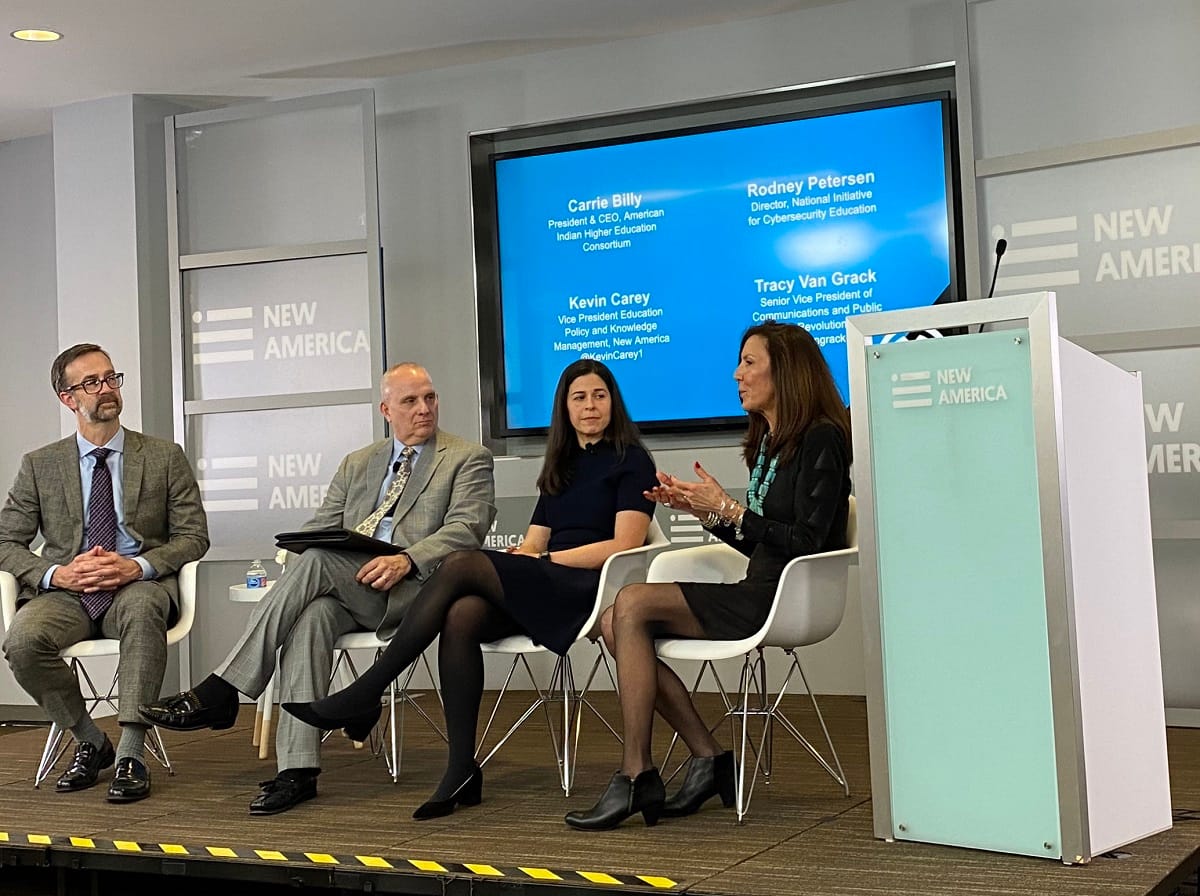Chancellor of North Dakota University Proposes a Digital-Cyber Land-Grant Program to Revitalize Rural America
WASHINGTON, February 5, 2020 – The chancellor of a key land-grant university system on Wednesday proposed a way to modernize these universities through a system of digital inclusion aimed at revitalizing the heartland. Speaking at the New American think tank, Chancellor of the North Dakota Universit

WASHINGTON, February 5, 2020 – The chancellor of a key land-grant university system on Wednesday proposed a way to modernize these universities through a system of digital inclusion aimed at revitalizing the heartland.
Speaking at the New American think tank, Chancellor of the North Dakota University System Mark Hagerott proposed a “digital-cyber” land-grant system. To cope with and harness the altered digital landscape that continues to rapidly change, Hagerott believes that education must shift to accommodate this new reality.
Hagerott proposal, first articulated in Issues in Science and Technology magazine, is designed to help students better understand and confront digital realities like coding, artificial intelligence, and cybersecurity.
Hagerott wrote, “the nation needs an advanced technology university system on a similar scale to catalyze the transition from a postindustrial economy, where many are left behind, to an inclusive digital economy.”
Hagerott’s idea was inspired by the land-grant university system that began with the passage of the Morrill Act in 1862. Signed by President Abraham Lincoln in the middle of the Civil War, the law called for the federal government to award land to states, which the states then sold to fund schools.
For their first century of existence, land-grant universities traditionally focused on agriculture education.
Now, Hagerott proposes five features of digital-cyber land-grant universities.
First, he suggests a “hybrid campus,” a combination of online and “brick-and-mortar education.” This doesn’t mean only a technical curriculum, but also includes the humanities and social sciences.
Second, changing the rigid Ph.D. requirement to be a university professor, which “may prevent critically important knowledge holders from leaving the industry or government and joining in this national education effort.”
Third, funding for these schools should not hurt “hard-pressed states and students.”
Fourth, “modification of federal tax incentives” for “internet philanthropists.”
Fifth, “incentives for technology companies and leading high-tech universities to help staff and partner with the new universities’ faculties and programs.”
Reactions to Hagerott’s digital-cyber land-grant university proposal
Commenting on the proposal, New America CEO Anne-Marie Slaughter drew parallels between the modern era invigorated by new technologies in the early 1900s and our digital landscape today.
Slaughter advocated for “massively changing our education system” and our understanding of higher education. Although Slaughter spent many years in the Ivy League sector, she said that it is now community colleges and state universities that are spearheading change and innovation.
Hagerott said he envisioned this new age of land-grant universities not solely serving the large communities in coastal tech hotspots, but rural areas. Location and place are crucial to the proposal.
People can’t keep moving to the coasts, said Hagerott. He supported encouraging rural Americans to engage with digital-cyber land-grant universities, and to stay in their hometowns to boost rural and farming economies and promote digital inclusion.
American Indian Higher Education Consortium CEO Carrie Billy commented that mobility is not an issue in tribal communities because they have a strong connection to the land. It’s a matter of bring cyber jobs to these deeply rooted communities where unemployment is high, said Billy.
Broadband’s vital role in the digital-cyber land-grant proposal
In response to the moderator asking what additional services universities should provide, National Initiative for Cybersecurity Education Director Rodney Petersen highlighted connectivity to broadband, but he saw the positive role that digital-cyber land-grant institutions could play with connectivity issues.
Billy lamented the loss of tribal languages, and suggested facilitating indigenous language learning through digital access.
Tracy Van Grack, senior vice president of public policy for AOL founder Steve Case’s investment company Revolution LLC, drew a comparison between opportunities to connect with associates in tech hub cities versus rural communities. Digital-cyber land-grant universities would still need to provide network density, or use the university as a convener for networking, said Van Grack.
Van Grack also suggested reexamining restrictive immigration policies because of their role as a barrier to innovation. Allowing people to come the United States for an education and building companies opens opportunities for everyone, said Van Grack.










